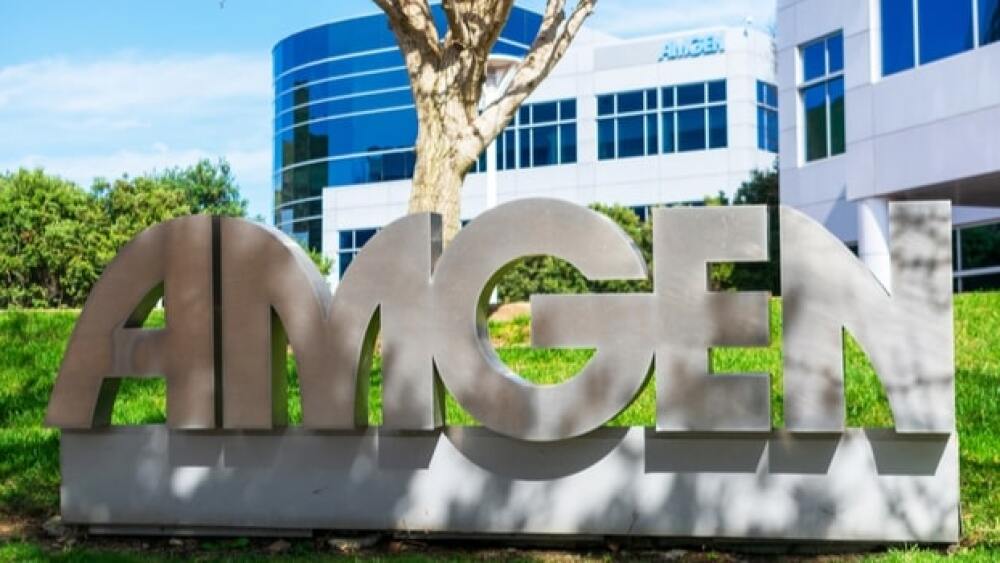Amgen will gain Teneobio’s proprietary bispecific and multispecific antibody technologies, which have the potential to target multiple diseases across Amgen’s core therapeutic areas.
Michael Vi / Shutterstock
Amgen is snapping up privately-held TeneoBio and its class of biologics dubbed Human Heavy-Chain Antibodies in a deal that could total $2.5 billion.
Through the acquisition, which includes a $900 million upfront payment, Amgen will gain Teneobio’s proprietary bispecific and multispecific antibody technologies. The Thousand Oaks, Calif.-based pharma giant believes these technologies will have the potential to target multiple diseases across Amgen’s core therapeutic areas.
Amgen stated that the Teneobio technology complements its own antibody capabilities. The addition of Teneobio’s Human Heavy-Chain Antibodies will allow for a “streamlined, sequence-based discovery approach for target binders.”
In addition to gaining Teneobio’s antibody technology, the deal also brings to Amgen a novel T-cell engager platform. This will also complement existing capabilities for Amgen. Specifically, this will expand on the company’s position with bispecific T-cell engagers through a differentiated approach to Amgen’s BiTE platform, which offers the potential to develop off-the-shelf therapies for various diseases.
Through the acquisition, Amgen gains Teneobio’s Phase I bispecific T cell-engager TNB-585, which is being developed as a potential treatment for metastatic castrate-resistant prostate cancer (mCRPC). TNB-585 will complement its own Phase I drug candidates, acapatamab and AMG 509. Each of these three investigational therapies uses a different approach to treat a highly prevalent disease for which new treatment options are needed.
Additionally, Amgen will gain several preclinical oncology pipeline assets for its arsenal. These assets have the potential for near-term Investigational New Drug Application filings.
David M. Reese, executive vice president of Research and Development at Amgen, stated that the acquisition of Teneobio and its capabilities would strengthen the company’s ability to develop novel and innovative therapies for a wide range of diseases.
“Teneobio’s antibody platform complements our existing capabilities and could potentially give us a more diverse set of building blocks that can be developed into new multispecific therapeutics,” Reese said in a statement. “In addition, the availability of Teneobio’s CD3 engager technology will allow us to broaden our capabilities in generating bispecifics, and with our own technology, enable customization of the T cell engaging domain of the molecules depending on the disease and target.”
In 2019, TeneoOne, a subsidiary of Teneobio, and AbbVie teamed up to develop TNB-383B, a BCMA-targeting immunotherapeutic for the potential treatment of multiple myeloma. Last month, AbbVie exercised its option to acquire TeneoOne and TNB-383B.
Roland Buelow, chief executive officer of Teneobio, stated he was excited for his team to become part of the Amgen family. He added that Amgen’s immuno-oncology expertise is “ideally suited” to advancing Teneobio’s differentiated technologies and multispecific antibodies and that the two companies share a focused commitment to developing novel disease-modifying multispecific antibodies to treat patients in need.
“Over the last five years, Teneobio developed leading-edge expertise in efficiently engineering differentiated multispecific and bispecific therapeutics for numerous indications with potentially better safety, efficacy and pharmacokinetic profiles than the first generation of T-cell engagers,” Buelow added.
Prior to the close of the Amgen deal, Teneobio will spin off three affiliates to existing equity holders. The affiliates are TeneoTwo, with its anti-CD19/CD3 asset; TeneoFour and its anti-CD38 enzyme inhibitor; and TeneoTen, which is developing an anti-HBV/CD3.





